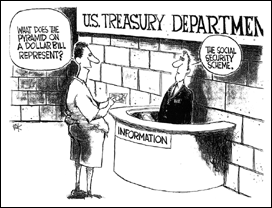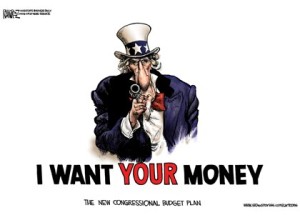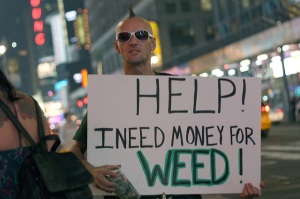
Politicians on both sides of the aisle stump on the promise of working toward energy independence, yet will not advocate for nuclear power—an energy source so vast, that if you filled four football fields with 55-gallon drums of oil, you’d only need one shot glass of fuel converted into energy by nuclear power to match burning all that oil in energy production. The biggest reason for this is what I will call the “Airplane Principle.”
We’ve almost all heard that statistically speaking, air travel is significantly safer than travel by car. For those who haven’t heard this, or are not sure why people say it, allow me to explain. This article citing an NHTSA study shows that the odds of dying in a motor vehicle accident are 1:98, but for airplanes, a mere 1:7,178—seventy-three times less likely. Yet, many more people are afraid to fly than drive despite the evidence that it is overwhelmingly safer.
So why is this? When things go wrong on a car, it can be very survivable; you often just pull to the side of the road and call a tow truck. When things go wrong with an airplane however, you’re liable to fall out of the sky—an event which likely ends in death—a much more terrifying event. I suspect fear of heights, a common phobia, doesn’t help either.
With nuclear energy, the stories of Chernobyl, Three Mile Island, and the recent Fukushima disaster continue to strike a similar irrational fear in people as they recall images from 1983’s The Day After. While it’s true that nuclear energy is derived ultimately the same way as the release of energy from the hydrogen-bombs dropped on Japan to end World War II, we must not associate death and destruction with nuclear energy. Yes, it could go horribly wrong, but history suggests it almost never does.

Here are a few facts to help you evaluate nuclear energy on its merits.
- Nuclear energy is not limitless, but it will seem like it. For instance, the US military employs submarines that are powered by nuclear reactors. These are very large vessels that would otherwise be powered by thousand of tons of diesel fuel in their lifetime. These nuclear submarines have an approximate 30-year lifespan, and during that time, they will never get refueled. Imagine filling up your car when you drive it off the showroom floor, then never having to refuel it until 2044!
- This article from MIT points out that if you converted one atom of hydrogen to energy via combustion, it produces 1.0 electron-volt (eV). One atom of carbon under combustion produces 1.4 eV. One atom of uranium converted to energy via nuclear fission? 210,000,000 eV. (No, that is not a typographical error). They also point out that a fossil fuel power plant will produce one million more times waste and consume a million-fold more fuel than nuclear. Please click the link above for many more staggering facts—it is worth the read.
- During the Chernobyl disaster, the worst nuclear disaster in the history of nuclear energy, resulted in an initial two deaths during the explosion, and an additional 28 deaths due to acute radiation poisoning from the clean up effort afterwards. An increase in the region of 4,000 cases of thyroid cancer have been reported, but it is also known that the screening process for such cancer, having been vastly improved, may be a significant reason for increased numbers of the disease which while still capable of being deadly, is often treatable.
- During the Three Mile Island disaster, it is reported that “there were no injuries or adverse health effects from the Three Mile Island accident.” Yet people continue to think of it as a disaster instead of just an ultimately what it really was, an innocuous failure.
- During the Fukushima disaster, while 19,000 people were killed by the tsunami that wreaked havoc on the nuclear plant located there, the nuclear plant killed no one—its fail-safes having largely done their job. Despite the media’s constant focus on the nuclear plant, the killer was mother nature.
- From 2006 to 2012, there were 375 people killed mining for coal alone. That means that in a seven-year span, 12.5 times more people were killed bringing coal energy to market compared to a 28-year span of bringing nuclear energy to market. Specifically, a worker is 4,000 times more likely per kilowatt-hour, to die bringing coal to market, than nuclear energy.
- The reactors used at Chernobyl, Three Mile Island, and Fukushima were all outdated reactors. The Chernobyl reactor, a relic of the communist Russian government at the time, which was infamous for its poor quality products. The reactor’s shortcomings were so vast that it would be laughable if it had not resulted in so many deaths, and affected the livelihoods of many more. As such, it seems almost unfair to use it in an argument against nuclear energy—no one in this modern era would build such a reactor.
- Burning coal, oil, gas, and other carbon-based fuels produces carbon dioxide, something that by all accounts is deemed bad for the atmosphere—global warming or just pollution-wise. Nuclear reactors however produce water vapor, and an incredibly low amount of radioactive waste that has been safely stored for decades without incident.

Nuclear Power Plant Emits Only Water Vapor - In a recent 12-month period from October 2012 to October 2013, solar power produced only 8.6 megawatt-hours of energy (0.21% of America’s usage). This means we would have to take all the solar panels in the United States and multiply them by 476 times to convert to a fully solar-powered nation.
- Wind power produced a more respectable 164terawatt-hours, which is still only 4.06%. We’d need twenty-five times more windmills around the country to rid ourselves of fossil fuels.
But here’s the catch with solar and wind, they’re all currently in locations where the wind or sun is most abundant. If the wind isn’t blowing or the sun isn’t shining, they don’t work. There’s no current “super-battery” for them to store energy for later. (Update from May, 2015, there is a super-battery in the works for this issue.) So multiplying them by twenty-five, in reality, is not as viable as the number suggests.

While I am a libertarian, and many Republicans generally support nuclear energy, many Democrats often do not. Although this is one issue Barack Obama has broken from his party and supported to his credit, I’ve always found this curious as Democrats claim to be the party of science, often painting Republicans out as flat-Earthers. So if it’s not the science, what is it that Democrats have against nuclear energy?
The environmentalist movement is largely composed of those who are anti-nuclear, and are also traditionally Democrats. Their party simply can’t afford to upset their base, nor do they want to. But the truth is, this is not a matter of opinion that should be subject to political agendas, this is science where there is only right and wrong. The film Pandora’s Promise breaks from this tradition following some prominent scientist/environmentalists who were anti-nuclear until they decided to do look at the science themselves. I highly encourage you to watch it.
Am I suggesting we abandoned renewable sources? Of course not. As money investors know, putting all your eggs in one basket is never a good idea. Even the best solar cells only convert about 20% of the sun’s energy that hits them into electricity leaving significant room for improvement. But even if these technologies do improve (and they will), we cannot assume our energy needs will remain static as our population continues to grow. As such, we will likely still need alternative energy sources like nuclear.
Government must make it as easy as possible for nuclear technology to grow in a free market, by regulating based on science instead of fear. With the promising technology of thorium reactors, small modular reactors (SMR’s), and the older idea of breeder reactors, a reactor that reburns its spent fuel to avoid creating nuclear waste, that have been abandoned in large part due to the regulatory climate against them, America could be energy independent, or even start selling energy, if we got behind this great power source.
Much like most Americans feel about guns, we must have a great respect for nuclear instead of an irrational fear of it—our energy independence very likely depends on it.















 we shouldn’t be afraid to overhaul something that is inherently flawed. Our education system could be privatized. Our tax system could be converted to a consumption based tax. Instead of settling for a SSI system that’s going broke, giving people their money back and letting them invest privately could be implemented.
we shouldn’t be afraid to overhaul something that is inherently flawed. Our education system could be privatized. Our tax system could be converted to a consumption based tax. Instead of settling for a SSI system that’s going broke, giving people their money back and letting them invest privately could be implemented. One way to win an election is to promise people free money. Convincing the masses that government would be there in their time of need was Obama’s most effective election tactic.
One way to win an election is to promise people free money. Convincing the masses that government would be there in their time of need was Obama’s most effective election tactic. Most people who earn a 4 or 5-figure salary are simply not as motivated to be rich commensurate to those who went to college for 8 years and attained a degree they actually use, nor as courageous as those who took the plunge and invested their money into a business idea like Steve Jobs or
Most people who earn a 4 or 5-figure salary are simply not as motivated to be rich commensurate to those who went to college for 8 years and attained a degree they actually use, nor as courageous as those who took the plunge and invested their money into a business idea like Steve Jobs or 


